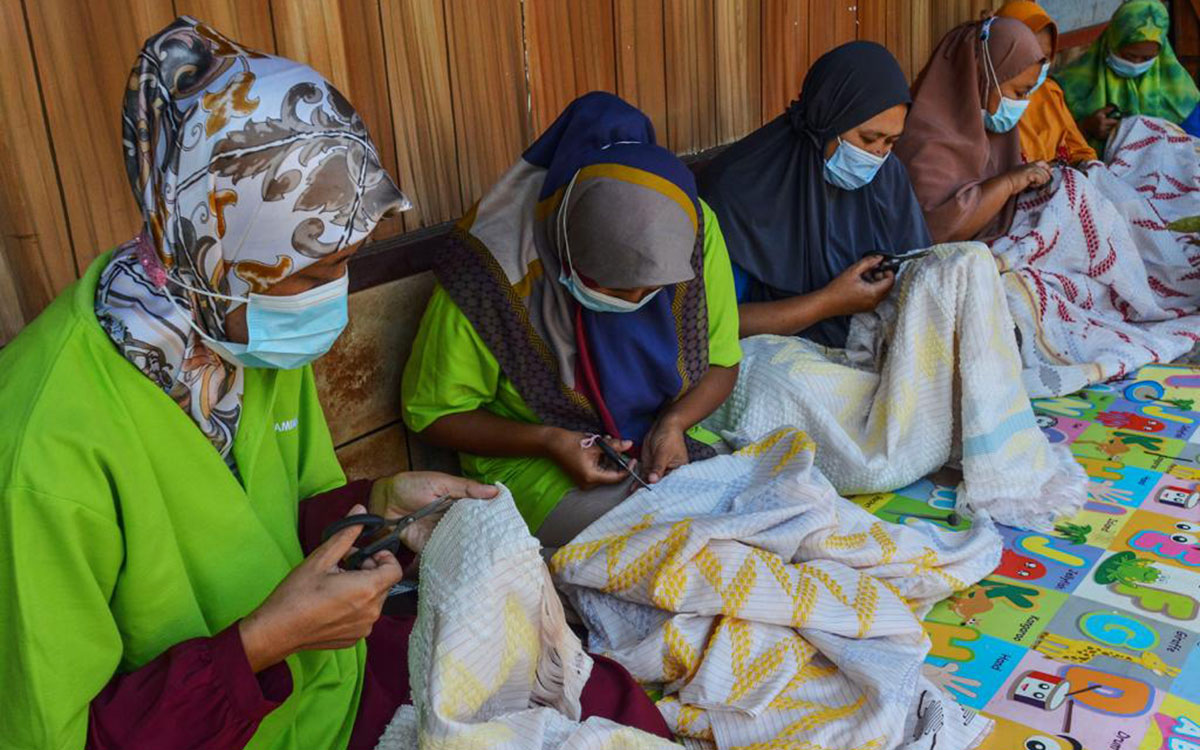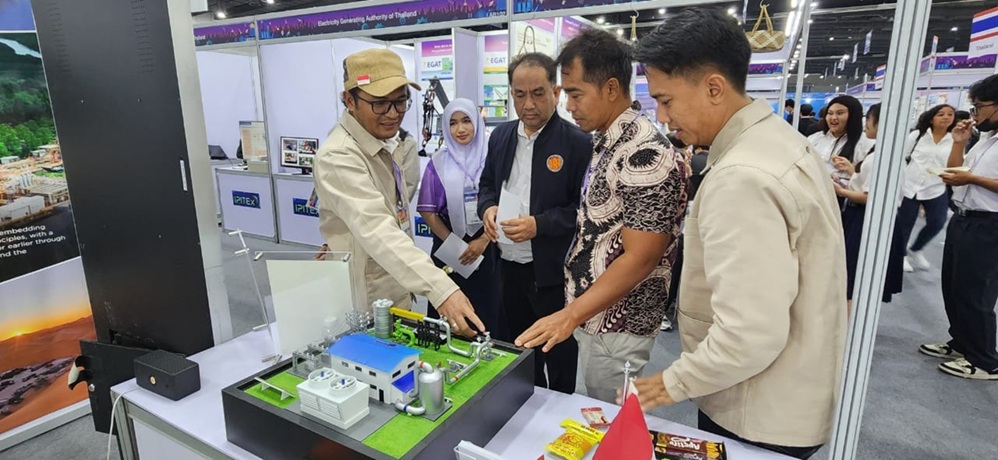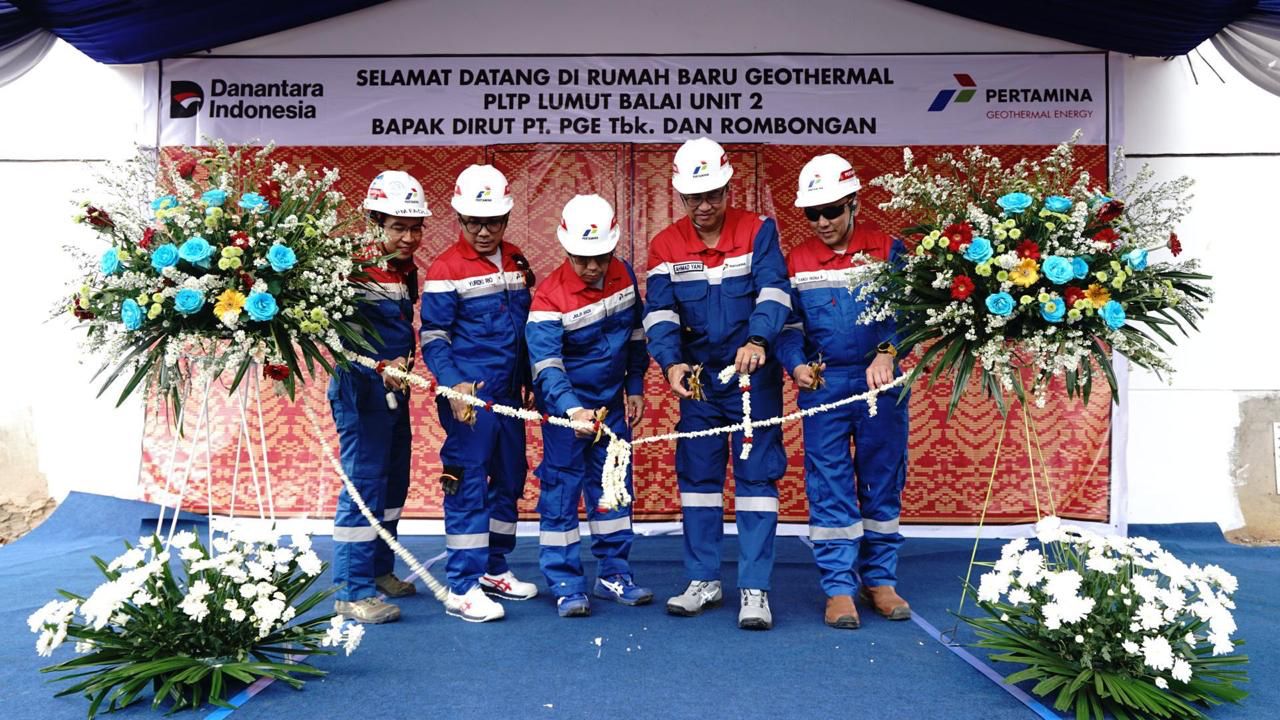Responding to the challenge of the huge demand for national silk thread, Pertamina Geothermal Energy (PGE) Karaha Area fostered partners cultivate silkworms in Karanganyar Village, Cipondok Village, Sukaresik District, Tasikmalaya Regency.
Holib (49th) Head of the Natural Silk Weaving Business Group, Mardian Putera, revealed that currently, around 95% of the yarn demand in Indonesia still comes from imports, especially from China and Japan. In fact, said Holib, considering the geographical and geological location, Tasikmalaya has a climate and land condition that is very suitable for silkworm cultivation.
“Currently, we are cultivating silkworms on an area of 3 hectares. And thank God, from what we have been doing for the past year or so, at least we have the independence to produce our own silk yarn,” said Holib.
Holib admits that it is not easy to cultivate silkworms, even though the results are very promising. For example, there are about 25,000 eggs in a box of silkworm rearing packages. In one box it can produce about 38-40 kg of silkworm cocoons with a feed requirement of about 600-850 kg of mulberry leaves. This cocoon fiber will then be taken to be used as silk thread by the industry.
One kilogram of cocoon itself in the market price ranges from IDR 50,000 to IDR 70,000. Meanwhile, said Holib, the silkworm cultivation cycle itself is not long. It only takes about 27-30 days from the start of maintenance to harvest with an initial capital of Rp. 400,000 for one cycle of cultivation. "In a year can be done 8-10 times maintenance," he said.
Furthermore, Holib said, in one maintenance cycle, the turnover that can be obtained by farmers is around Rp. 2,000,000, - The total income will be much greater by taking into account the harvest of other commodities produced in the intercropping area. In the Mardian Putera Natural Silk Weaving Business Group itself, a business for the production of urbei leaf tea is currently being developed.
"Alhamdulillah, even though we can only sell in the form of leaves, it is not impossible in the future, with the help of tea production equipment from PGE Karaha we will be able to make it happen. We are currently in the process of preparing and continuing to learn,” he said.
Holib said, the biggest challenge in silkworm cultivation is the patience of the farmers themselves. This is because silkworms need to eat a lot before they go through the process of metamorphosis into a cocoon.
“Small silkworms are not resistant to odors, such as the smell of cigarettes and perfume. So that people or workers who enter the cage should not contain the smell. And thank God, from the mulberry gardens, both owned by members individually and in groups, we are currently quite able to meet the caterpillar's food needs," he said.
As told by Holib, the monetary crisis that hit Indonesia in 1998 had devastated the businesses that almost all of the villagers were involved in. The majority of village men then ventured to the city and left a handful of people who are still trying to maintain the business by producing white plain woven cloth which is the basic material for batik.
Holib continued, one way to develop weaving is to increase knowledge and understanding of trends or market developments for weaving industry players. This is intended so that weaving craftsmen can meet the needs and tastes of consumers who are increasingly diverse.
“We really hope that the government will support the development of this traditional cloth. For example, use in state meetings or important events, even if only as complementary accessories. Including the policy of using woven fabrics as daily clothing as official clothes on certain days as has been applied to batik, "he concluded.
Meanwhile Area Manager of Pertamina Geothermal Energy (PGE) Karaha Andi Joko Nugroho on a different occasion expressed his appreciation for the hard work the Group has done in its efforts to provide raw materials for silk fabric. According to Andi Joko, what the group members do is in line with the company's efforts to accelerate its development to provide energy for the country.
“We are very aware of the importance of harmony between the achievement of goals and responsibilities to the operating environment and the surrounding community. Through the Social and Environmental Responsibility (TJSL / CSR) program, the company consistently develops the environment and society based on the potential of available resources according to local wisdom," said Andi.
The guidance carried out by PGE Area Karaha for the Mardian Putera Natural Silk Weaving Business is integrated from upstream to downstream. In the upstream sector, assistance is provided in the cultivation of silkworms, including land preparation, provision of superior mulberry seeds, maintenance of silkworm houses and rejuvenation of knitting equipment.
Meanwhile in the downstream sector, coaching has been carried out in the form of increasing group institutional capacity, rejuvenating weaving equipment, training on coloring techniques, and product branding. During the pandemic period in order to maintain the existence of the business, the groups were also given assistance in the form of raw materials for silk thread and various product promotion opportunities.
PT Pertamina Geothermal Energy (PGE) is a company engaged in the utilization of geothermal energy and is part of the Subholding Power & New Renewable Energy (PNRE) of PT Pertamina (Persero). PGE's Karaha Unit I Geothermal Power Plant (PLTP) with a capacity of 30MW was commercially operational on April 6, 2018.
Pertamina Geothermal Energy consistently develops the potential of the community and the surrounding environment, especially in ring 1 of the operational area. This is in line with the assignment from the Ministry of State-Owned Enterprises (BUMN) through the Regulation of the Minister of SOEs PER-05/MBU/2007 concerning the BUMN Partnership Program and the Community Development Program and updated through the Regulation of the Minister of SOEs PER-5/MBU/04/2021 concerning the Program SOE TJSL. Strategic planning for community development programs is carried out through four pillar programs; (1) Smart Petamina, (2) Healthy Pertamina; (3) Pertamina Green; (4) Independent Pertamina.



.jpeg)

